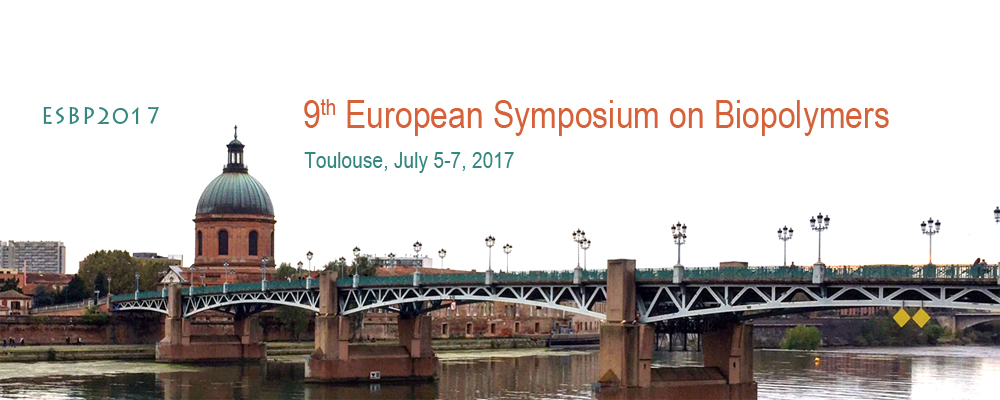Keynote Speakers
|
Maria Reis, Universidade Nova de Lisboa - Portugal
|
|

|
Prof. Maria Reis is full Professor in Environmental/industrial Biotechnology at FCT-UNL. Its main research interests are on the development of sustainable bioprocesses for the removal of pollutants from water and wastewater streams and for the exploitation of industrial wastes for the production of biopolymers and bulk chemicals. Within this research area, she published more than 200 papers in scientific journals with peer review. She is co-author of 4 National patents and 5 International Patents. She coordinated 20 national and international projects (team leader), out of which 9 European Projects and 6 were co-funded by industrial companies, and participated as team member in 22 research projects. She co-supervised 20 PhD students and is currently co-supervisor of 11PhD students. Her scientific work has been distinguished with several awards and she was the winner of the Solvay & Hovione Ideas Challenge SHIC’08 Prize-Solvay prize in 2008. Nominated and Elected to the Portuguese Academy of Engineering in 2009 and Elected as IWA Fellow, September 2010. She is Editor of the Water Research (Elsevier).
|
|
Auxiliadora Prieto, CIB-CSIC - Spain
|
|
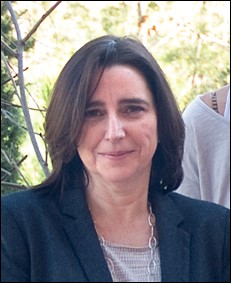
|
Dr. Auxiliadora Prieto is a staff Scientific Researcher of the National Spanish Research Council (CSIC) since 2005. After receiving her PhD in Pharmacy from the Complutense University of Madrid in 1995, she worked as EMBO fellow at the Federal Institute of Biotechnology, Germany, in the group of Prof. Kenneth Timmis and at the Institute of Biotechnology, ETH Zürich, Switzerland, in the group of Prof Bernard Witholt. She currently leads the Polymer Biotechnology group as part of the Environmental Biology Department of the Biological Research Centre of CSIC. The group aims to explore and exploit the bacterial abilities for producing and degrading plastics in order to contribute to planet sustainability, using tools of molecular biology and metabolic engineering, combined with new omic technologies and synthetic biology. She has huge experience in microbial metabolism for the molecular characterization of pathways related to biosynthesis and biodegradation of bioproducts. Current focuses of the group include: i) Implementation of sustainable processes involving the use of wastes and syngas to generate biomaterials; ii) Studying the metabolic and regulatory networks for bacterial polyhydroxyalkanoate accumulation based on Systems Biology approaches; iii) Design and bioproduction of second generation functionalized materials with tailored properties (e.g. biocide); and iv) Synthetic Biology based design and development of new downstream systems to process the bacterial biomass for the separation of intracellular bioproducts. Dr. Prieto has participated in, led and coordinated national (12) and international projects (5), devoting her effort to the production of bio-polymers in microorganisms, addressing this subject from different approaches to cover both basic and applied aspects. She has over 70 international scientific papers and she is main inventor of five international patents, three of them licensed to biotech SMEs. She is a member of the editorial board of Applied Environmental Microbiology and editor in chief of Microbial Biotechnology.
|
|
Dieter Jendrossek, Institute of Microbiology, University Stuttgart - Germany
|
|
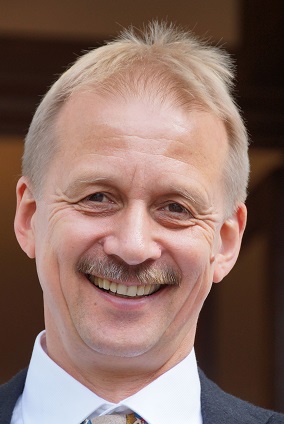
|
Prof Dieter Jendrossek holds a degree in microbiology (university Goettingen). After his PhD under the supervision of Prof. H. G. Schlegel, he began his carrier as assistant professor for microbiology in 1989. In 1995 he obtained the venia legendi for Microbiology (Habilitation). He his professor for microbiology and biochemistry at the University of Stuttgart since 1999. He currently heads the working group “Microbial Cell Biology and Biopolymers” of the institute of Microbiology of Stuttgart. He worked on Metabolism of monoterpenes (citronellol) in bacteria and on Activation-independent cyclisation of acyclic terpenes (citronellal). His current research focuses on Metabolism of polyhydroxybutyrate (extracellular degradation, intracellular mobilization, PHB granule formation), Bacterial degradation of natural rubber by heme-dependent rubber oxygenases and Structure and role of polyphosphate granules in bacteria. In 2010 he organized the 12th Intern. Symposium on BioPolymers, ISBP2010, Stuttgart. He is member of the editorial board of Applied and Environmental Microbiology since 2013.
|
|
Jochen Schmid, TU München - Germany
|
|

|
Dr.-Ing. Jochen Schmid received his PhD in Biotechnology at the Technische Universität Berlin and did his Postdoc at the Technical University of Munich where he currently heads the research group metabolic engineering and microbial exopolysaccharides at the chair of chemistry of biogenic resources of Prof. Volker Sieber. His passion lies within the optimization of bioprocesses towards biogenic and biobased polymers as well as creation of synthetic microbial biopolymers from renewable resources. His core activity is the tailor-made production of microbial exopolysaccharides and the evaluation of novel technical applications. By use of systems biology and synthetic biology approaches he pursuits the creation of chassis organisms to produce and characterize synthetic microbial exopolysaccharides by combinatorial assembly of different exopolysaccharide encoding biosynthesis pathways. The current focus of the group is the identification and creation of novel exopolysaccharide producers to enhance the field of applications for this valuable class of biogenic polymers. Dr.-Ing. Schmid is spokesman of the Zukunftsforum Biotechnologie DECHEMA and CTO of the start-up company CASCAT GmbH which strives for the realization of synthetic chemo-enzymatic reaction cascades based on renewable resources.
|
|
Manfred Zinn, University of Applied Sciences - Switzerland
|
|
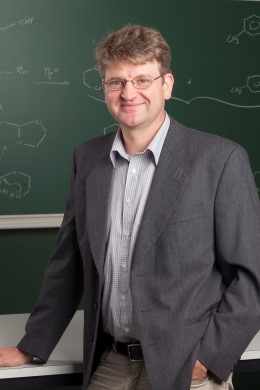
|
Prof Manfred Zinn heads the research group Biotechnology and Sustainable Chemistry at HES-SO Valais (Sion, Switzerland). He is mainly interested in bioprocesses with prokaryotes and eukaryotes. His core activity is the tailor-made biosynthesis of polyhydroxyalkanoates in bacteria for industrial and medical applications. With respect to bioprocesses he is designing and optimizing diverse cultivation methods (batch, fed-batch, chemostat and two-stage chemostat) and is familiar with up-scaling of fermentations from agar plate to pilot scale (200 L). State-of-the-art in process controlling (PAT) has been developed in his group to assess the performance of cells and bioprocesses. Prof Zinn has published more than 60 publications in peer reviewed journals, 10 book chapters and proceedings, and filed 3 patents.
|
|
Yuemei Lin, Delft University of Technology - Netherlands
|
|

|
Dr. Yuemei Lin is an Assistant Professor of Department of Biotechnology at Delft University of Technology in the Netherlands. Her current research focuses on the extraction and characterization of extracellular polymers (EPS) in microbial aggregates (flocculant sluge, granular sludge and biofilm), understanding the role of EPS in microbial aggregates formation, recovering EPS from waste sludge and converting it into useful material.
|
|
Robbert Kleerebezem, Delft University of Technology - Netherlands
|
|
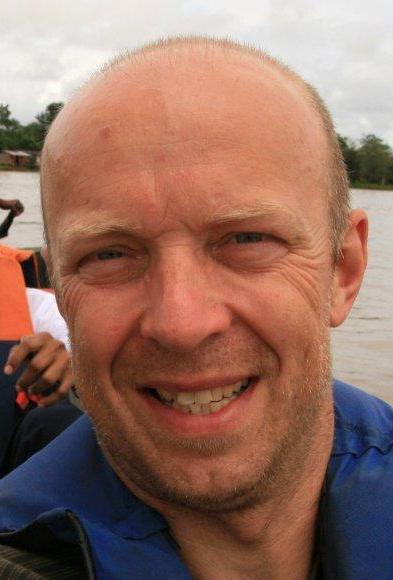
|
Robbert Kleerebezem (1966) studied Environmental Sciences (specialization Environmental Technology) at the Wageningen Agricultural University. He subsequently conducted his PhD at the same university at the department of Environmental Technology under supervision of Prof. Gatze Lettinga. After post doc positions in Santiago de Compostela, Spain, and Moscow, Russia, Robbert was first post doc and since 2006 assistant professor at the Biotechnology department of the Delft University of Technology. Robbert has supervised approximately 15 PhD students and is author of more than 150 papers (h-factor 35). Robbert is project leader of a number of projects aiming for resource recovery from waste, such as the perspective program named Waste To Resource involving 8 research groups and more than 10 companies. His specific areas of expertise include resource recovery from agroindustrial residual streams, and thermodynamic system analysis of microbial ecosystems.
|
|
Alain Marty, INSA Toulouse and Carbios - France
|
|
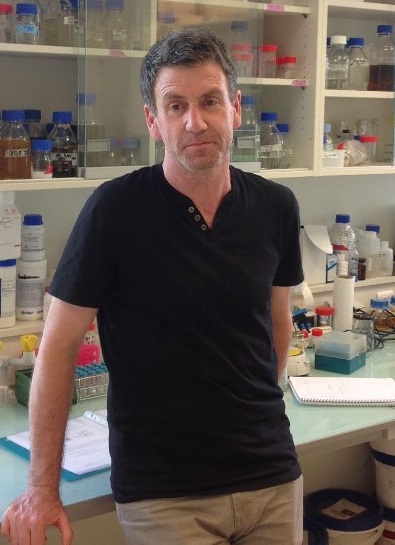
|
Prof. Alain Marty holds a degree in engineering and a Doctorate in Biochemical Engineering from INSA in Toulouse (the French National Institute of Applied Sciences). He began his career in 1992 as a Senior Lecturer at the INSA in Toulouse. In 2004, he obtains the Accreditation to Supervise Research (HDR). He becomes Professor in 2007 and conducts its research at INSA’s LISBP (Laboratory for the Engineering of Biological Systems and Processes). His area of research covers biotechnology, enzymology, molecular engineering of enzymes, developing intensified enzymatic reactors, and metabolic engineering. Over the course of his career, he has brought together cutting-edge research with the challenge of implementing it in the industrial sphere through collaborations such as with Syngenta, Avril, La toulousaine de Céréales, Sanofi, Pierre Fabre, Bioland, Mayoly Spindler, Lesaffre, Airbus. Involved since the beginning in the main project of Carbios, THANAPLAST™, he was during three years responsible of the INRA scientific actions within the project and member of the Scientific Advisory Board of Carbios. Since April 2015, Alain Marty is the Scientific Chief Officer of Carbios.
|
|
Mauro Majone, University of Rome "La Sapienza" - Italy
|
|
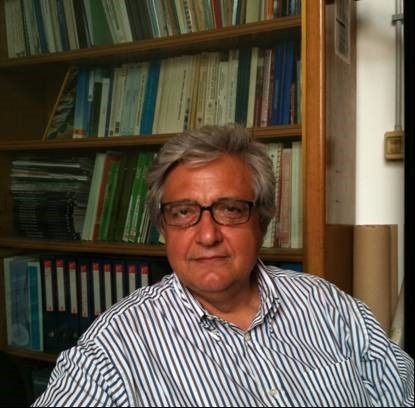
|
Prof. Mauro Majone is professor of Chemical Engineering at the Department of Chemistry of the University of Rome “La Sapienza”. He heads the multidisciplinary Research Center for protection of Environment and Cultural Heritage (CIABC). He also heads the Board of the Doctorate Course of Chemical Engineering. His main research focuses on environmental and Industrial biotechnologies for treatment and valorisation of waste and wastewater. Biopolymer (PHA) production and remediation of polluted soils and groundwater. Prof. Majone is co-author of more than 160 papers on international scientific journals with peer review, which received more than 4000 citations (HI=38). Furthermore, he is the scientific coordinator of several research projects under public or private commitment, including several FP7 and H2020 Projects. Presently, Coordinator of the H2020 Project RES URBIS (GA 730349) “Resources from Urban BioWaste”.
|
|
Berit Løkensgard Strand, NTNU Trondheim - Norway
|
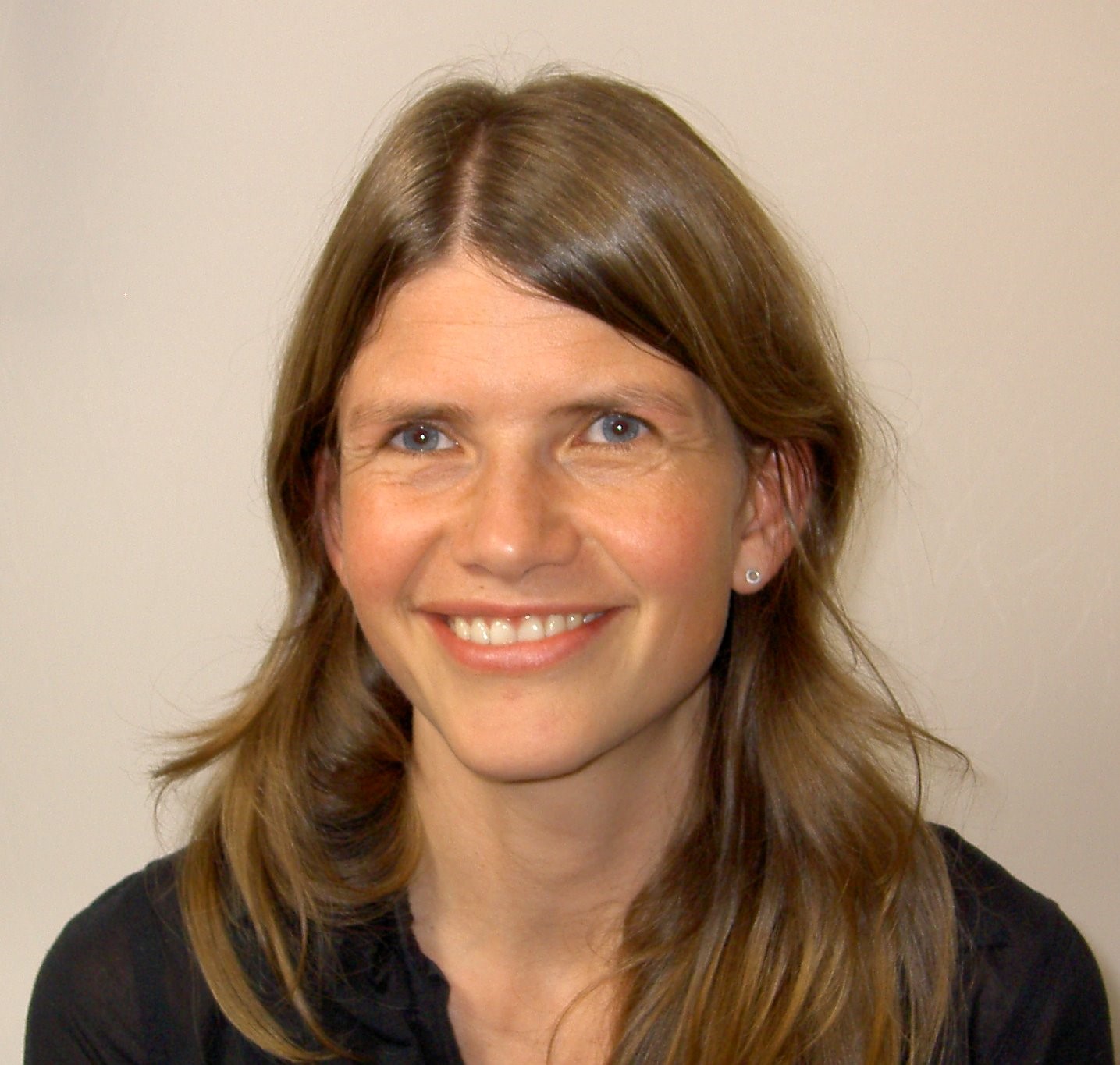 |
Prof Berit Løkensgard Strand is professor in biopolymer materials at Norwegian Biopolymer Laboratory (NOBIPOL) at NTNU Norwegian University of Science and Technology (Trondheim, Norway). Strand scientific work is focused on basic understanding of alginate as a biopolymer, on the functional properties depending on composition and tailoring of composition through enzymatic modification and the selection of gelling ions. Research interest is also the interaction of alginate with biological systems. This includes the use of alginate gels as immune barriers in transplantation and interactions with the immune system, but also the interaction with cells including chemical modification of alginates to induce specific cellular attachment relevant for tissue engineering applications. Prof Strand has published more than 45 publications in peer reviewed journals and 4 book chapters.
|
|
Lars Wiefel, University of Münster - Germany
|
|
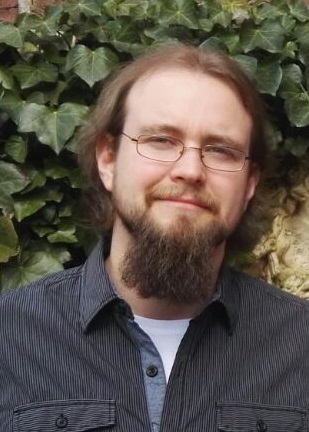
|
Dr. Lars Wiefel received his PhD in Biology from the University of Münster in 2016 under the supervision of Prof. A. Steinbüchel at the Institute of Molecular Microbiology and Biotechnology, where he is currently working as a postdoc and project leader. His main research focus is the biopolymer cyanophycin (CGP), which was also the topic of his PhD thesis. He is researching novel ways to modify the composition of CGP, with the aim of broadening the range of possible applications of the polymer. This research includes the establishment of CGP synthesis in suitable microbial strains and the optimization of existing CGP producing microorganisms for the in vivo synthesis of novel polymer compositions. Additionally, he researches chemical and enzymatic reactions that can be used to modify CGP in vitro. Furthermore, he is working on the optimization and upscaling of bioprocesses up to pilot scale bioreactors (500 L) as well as the corresponding downstream processing.
|
|
Ipsita Roy, University of Westminster - United Kingdom
|
 |
Professor Ipsita Roy is microbial biotechnologist and works mainly on natural biomaterials and their biomedical applications. She is currently a Professor at the Faculty of Science and Technology, University of Westminster, London and Visiting Professor at the Faculty of Medicine, Imperial College, London. Ipsita was awarded the prestigious Inlaks Scholarship and the Overseas Research Students Award to study forher Ph.D. at the University of Cambridge. During her time at Cambridge she was awarded the Churchill College Scholarship, the Lundgren Scholarship, Leche Trust Scholarship and the Cambridge University Philosophical Society Fellowship Award. Her PhD at the Department of Biochemistry was on a B12-dependent enzyme, methylmalonyl-CoA mutase. Her postdoctoral work was at the University of Minnesota, USA, at the Bioprocess Technology Institute, where she worked on fatty acid biosynthesis.
Subsequently, Ipsita taught at the Indian Institute of Technology, India, for four years as an Assistant Professor. During this time she worked actively on the production of biodegradable polymers from Streptomyces. Ipsita has been at the University of Westminster since 2000 and leads the Applied Biotechnology Research Group. She became Visiting Professor at the Faculty of Medicine, Imperial College London in 2013. She has published over 100 papers in high ‘Impact Factor’ journals such as Biomaterials, Biomacromolecules, Journal of Royal Society Interface. She has presented her work at numerous international conferences. Her group is currently focussed on the production of novel polyhydroxyalkanoates (PHAs), a group of FDA-approved natural polymers and their characterisation. She has pioneered the production of PHAs from Gram positive bacteria which lack immunogenic properties and hence are excellent materials for medical applications. Her group is involved in the application of PHAs in the area of hard tissue engineering, soft tissue engineering, wound healing and drug delivery. She is an editor of the Journal of Chemical Technology and Biotechnology (JCTB) and was the special editor of an In Focus Issue of JCTB on Biodegradable polymers and Controlled Drug Delivery. She is on the BBSRC, EPSRC, NSERC, Canada, FWF, Austria and NSFC, China, ESF, MUIR grant-reviewing panels. Her work has been funded by the EPSRC, EU, DuPont and WESTFOCUS, London. Ipsita is currently the scientific coordinator of a large EU project, HYMEDPOLY, and work package leader of another large EU FP7 project, NEURIMP. Both projects involve the use of PHAs for medical applications, nerve guidance conduits and antibacterial polymers.
|
| |
|
|
|
